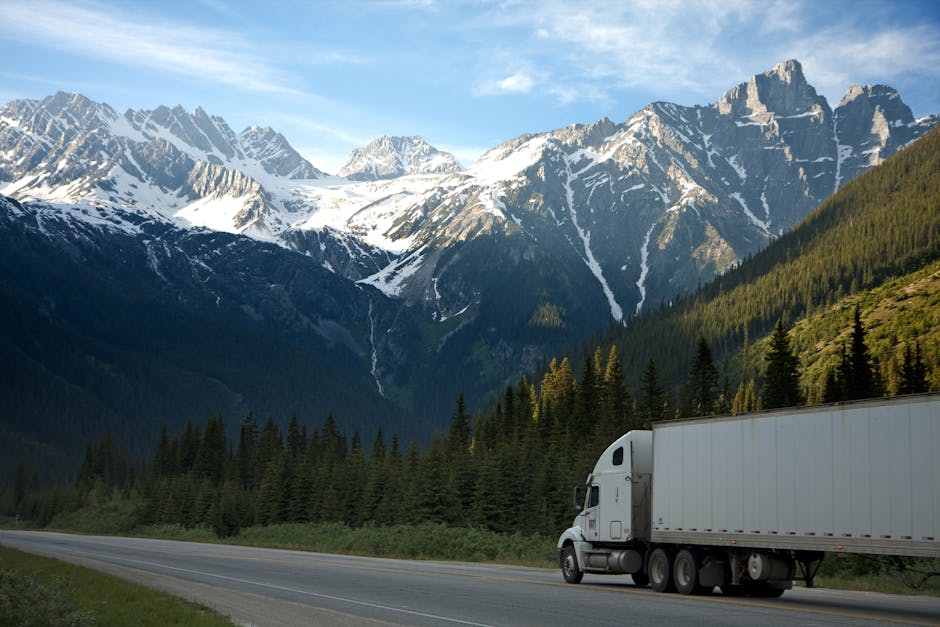Tractor-trailer accidents are a significant concern in Illinois, a state known for its extensive network of highways and bustling transportation industry. These massive vehicles, often weighing up to 80,000 pounds when fully loaded, can cause severe damage and injury when involved in accidents. Understanding the legal landscape surrounding tractor-trailer accidents in Illinois is essential for those affected by such incidents. This article provides a comprehensive overview of the statistics, state laws, notable cases, compensation mechanisms, and the importance of legal representation.
The Prevalence of Tractor-Trailer Accidents in Illinois
Statistical Overview
Tractor-trailer accidents are a serious issue in Illinois, contributing to a substantial number of road incidents each year. According to the Illinois Department of Transportation (IDOT), the following statistics provide insight into the magnitude of the problem:
- Annual Accidents: In 2023, there were over 12,000 reported crashes involving tractor-trailers across Illinois.
- Fatalities: These accidents resulted in approximately 160 fatalities, highlighting the deadly potential of such collisions.
- Injuries: More than 3,800 people sustained injuries, ranging from minor to catastrophic, in tractor-trailer accidents.
Contributing Factors
Several factors contribute to the high incidence of tractor-trailer accidents in Illinois:
- Driver Fatigue: Long hauls and tight deadlines can lead to driver fatigue, impairing judgment and reaction times.
- Distracted Driving: The use of mobile devices and other distractions significantly increases the risk of accidents.
- Poor Weather Conditions: Illinois' variable weather, including heavy rain, snow, and fog, can create hazardous driving conditions.
- Improper Loading: Overloaded or improperly secured cargo can cause a tractor-trailer to become unstable and lead to accidents.
Geographic Hotspots
Certain areas in Illinois are particularly prone to tractor-trailer accidents due to high traffic volumes and complex road systems:
- Chicago Metropolitan Area: As a major transportation hub, Chicago experiences a high number of tractor-trailer accidents, particularly on I-90 and I-94.
- Interstate 55 (I-55): This major north-south highway sees frequent tractor-trailer traffic and corresponding accidents.
- Interstate 57 (I-57): Connecting Chicago to southern Illinois, I-57 is another corridor with a high incidence of tractor-trailer crashes.
Illinois State Laws Governing Tractor-Trailer Accidents
Legal Framework
Illinois has specific laws and regulations designed to govern the operation of tractor-trailers and address accidents involving these vehicles:
- Federal Motor Carrier Safety Regulations (FMCSR): Tractor-trailers operating in Illinois must comply with FMCSR standards, which include hours-of-service limits, vehicle maintenance requirements, and driver qualifications.
- Illinois Commercial Driver's License (CDL) Requirements: Illinois mandates that commercial drivers obtain a CDL, demonstrating their ability to safely operate large vehicles through rigorous testing.
- Comparative Negligence Rule: Illinois follows a modified comparative negligence rule, meaning that if a victim is less than 51% at fault for an accident, they can recover damages, though their compensation will be reduced by their percentage of fault.
Reporting and Investigation
In Illinois, accidents involving injury, death, or property damage exceeding $1,500 must be reported to the police. Investigations typically involve analyzing vehicle data recorders, driver logs, witness statements, and any available video footage to establish fault and liability.
Notable Tractor-Trailer Accident Cases in Illinois
Case 1: The 2023 Chicago Interstate 90 Collision
In April 2023, a severe accident occurred on Interstate 90 in Chicago involving a tractor-trailer and several passenger vehicles. The crash resulted in three fatalities and numerous injuries. The tractor-trailer driver was found to be speeding and failed to brake in time.
- Legal Outcome: The families of the victims filed lawsuits against the trucking company, resulting in a settlement totaling $5 million for wrongful death and injury claims.
Case 2: The 2022 Peoria Fog-Related Pileup
In November 2022, dense fog contributed to a massive pileup on Interstate 74 near Peoria, involving multiple tractor-trailers and cars. The accident resulted in two deaths and dozens of injuries. Investigations revealed that several truck drivers were following too closely in low visibility conditions.
- Legal Consequences: The trucking companies faced multiple lawsuits, leading to settlements that covered medical expenses and compensation for lost wages and suffering.
Case 3: The 2023 Springfield Overloading Incident
In June 2023, a tractor-trailer overturned on Interstate 55 near Springfield, spilling hazardous materials onto the road. The accident was attributed to improper loading and exceeded weight limits.
- Compensation: The trucking company was held liable for cleanup costs and compensatory damages to affected motorists and businesses, totaling over $2 million.
Compensation and Legal Proceedings
Types of Compensation
Victims of tractor-trailer accidents in Illinois may be entitled to various forms of compensation, depending on the severity of their injuries and the circumstances of the accident:
- Economic Damages: These cover tangible losses such as medical bills, rehabilitation costs, lost wages, and property damage.
- Non-Economic Damages: These address intangible losses such as pain and suffering, emotional distress, and loss of enjoyment of life.
- Punitive Damages: In cases involving gross negligence or willful misconduct, courts may award punitive damages to punish the responsible party and deter similar behavior.
Trial and Court Proceedings
Litigating tractor-trailer accident cases in Illinois can be complex due to the number of parties involved, including drivers, trucking companies, insurance providers, and sometimes vehicle manufacturers. The legal process typically involves:
- Investigation: Gathering evidence, interviewing witnesses, and consulting with experts to establish liability.
- Filing a Lawsuit: Initiating legal action within the state's statute of limitations, which is generally two years for personal injury cases and wrongful death claims.
- Discovery Phase: Exchanging information between parties to build a strong case.
- Settlement Negotiations: Attempting to reach an out-of-court settlement to avoid lengthy litigation.
- Trial: If a settlement cannot be reached, the case may proceed to trial, where a judge or jury will determine liability and award damages.
The Importance of a Skilled Lawyer
Why Legal Representation Matters
Navigating the aftermath of a tractor-trailer accident requires specialized legal expertise due to the complex nature of these cases. A skilled attorney can provide invaluable assistance by:
- Investigating the Accident: Conducting a thorough investigation to gather evidence and establish liability.
- Negotiating with Insurance Companies: Ensuring victims receive fair compensation by negotiating effectively with insurance providers.
- Representing Clients in Court: Advocating for victims in trial proceedings to secure the maximum possible compensation.
- Handling Complex Legal Issues: Addressing issues such as multiple liable parties, federal and state regulations, and intricate insurance policies.
Case Example: The Role of a Lawyer in a Successful Outcome
In a recent case involving a tractor-trailer accident in Joliet, a victim who sustained severe injuries hired an experienced personal injury attorney. The lawyer successfully negotiated a settlement of $3.5 million, covering medical expenses, rehabilitation, and future lost earnings. This outcome underscores the critical role that competent legal representation plays in achieving favorable results for victims.
By seeking expert legal counsel, victims can navigate the complexities of these accidents and secure the compensation they deserve. Whether through settlement negotiations or trial proceedings, the pursuit of justice remains a vital aspect of addressing the aftermath of tractor-trailer accidents in Illinois.
Related Resources
For more information on related topics, explore these articles:
- Proving Fault in a Car Accident: Key Factors to Consider
- Ohio Laws Governing Truck Accidents: Notable Cases
- California Car Accident Laws: What Drivers Need to Know in 2025
Frequently Asked Questions
Q3: How long does it take to receive a settlement payment?
A: Most settlements are paid within 2-6 weeks after signing the release. Complex cases with structured settlements may take longer to finalize the payment arrangement.
Q2: What happens if I reject a settlement offer?
A: You have the right to reject any offer and proceed to trial. However, consider that trials involve more time, expense, and uncertainty compared to settlements.
Q1: Can I negotiate the settlement amount?
A: Yes, initial settlement offers are almost always negotiable. Your attorney can provide counter-offers with supporting evidence to justify a higher amount.






